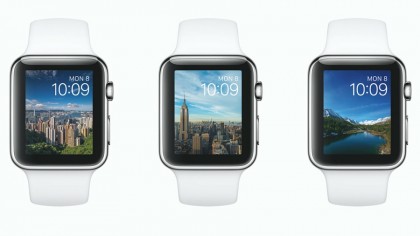Goodbye apps, hello smart agents: Are you ready for the post-app world?
Recent research shows that apps are on the wane

Anyone who has a smartphone bursting with downloaded apps is a rare breed – and getting rarer. Apps are on the wane. According to analysts at Comscore, most people (65%) aren't downloading apps at all, and get by with whatever comes pre-installed on phones.
Not that apps aren't being used. They are, but we're now in a one-app world; 42% of people spend most of their time on a single app.
We'll soon see a paradigm shift in terms of where people get their information from. By 2020, smart agents and virtual personal assistants (VPAs) will handle 40% of mobile interactions, and the post-app era will be in full swing.
"We are witnessing a shift from apps to new advanced forms of using artificial intelligence to create smart agents," says Mark Armstrong, European MD of global app development platform Progress. "They can positively and autonomously generate the next decision or suggestion."
He adds: "Autonomous decision-making will be taking place on a grander scale, and involves an ecosystem of complex data sets acted on dynamically, and based on user-preferences." With that kind of tech on the horizon, apps are beginning to look archaic.

App or website?
So what, exactly, is the post-app era, and when is it coming? It depends on who you ask.
"This is not really about replacing apps," says Nils Lenke, Director of Research, Nuance Communications. "What you will see is new Internet of Things (IoT) software platforms appearing in addition to apps, and you will also see cloud-based systems … as long as there are smartphones and tablets, there will be apps."
Sign up to the TechRadar Pro newsletter to get all the top news, opinion, features and guidance your business needs to succeed!
For Lenke, post-app is about pairing up devices, but for many companies, the mobile web is already replacing apps.
"Mobile marketers face a constant dilemma whether to create an app or a website," says James Rosewell, founder and CEO of 51Degrees, a device detection company. Why create bespoke, native apps for myriad platforms and devices when a single-codebase website will do?
"Mobile websites can offer the same functionality as apps for a fraction of the cost, are easier to maintain, and can be more profitable," says Rosewell, adding that it's easy to deliver a personalised experience for every visitor by detecting the device accessing the website. "It's the obvious choice."
However, there are other reasons why apps are losing their shine.

Sneaker tracking and app crawling
One cause of the demise of apps is Google's recent use of 'sneaker' tracking, which enables its algorithms to find and index data stored within apps. "This effectively streams content direct from an app without the user having to download the app itself," says Nick Braund, Head of Technology and Innovation at PHA Media.
"App developers will need to continue to evolve, as Google is doing, in order to stave off this attack and entice download levels similar to what we have seen to date – approximately 185 billion in the past year."
This is a big shift for app developers. "Making apps searchable is now a do or die tactic," says Pete Trainor, Director of Human Centred Design at Nexus Design. "If they can't be crawled, they won't be found."

What are smart agents and virtual personal assistants?
Think a supercharged Siri for whom saying "Here's what I found on the web" would be tantamount to self-deletion. While using Siri ties you to a device and its manufacturer, in the post-app Internet of Things era there will be many specialised assistants available. Nuance is now providing toolkits and cloud-based platforms that help developers create their own assistants using Nuance's automatic speech recognition, text-to-speech, and soon, natural language comprehension tech.
"General-purpose assistants like Siri promise to solve many different problems for you, and while the list of supported domains keeps growing, the user's challenge is that when making a query, they are uncertain whether they can expect Siri to be helpful and add real value, or whether the query will just end in a web search," says Lenke.
In the future, assistants won't be focused on just one device, their abilities and limitations will be clearer, and they will reside in different places – some on the cloud, some embedded, some hybrid.
"Smart agents differ from things like Siri in that product and service companies will ultimately be behind them, with tailored customer services," says Matt Mould, Technology Enablement Lead, Slalom Consulting. "One of the new battlegrounds will be which complete smart agent service do I use and subscribe to?"
Jamie is a freelance tech, travel and space journalist based in the UK. He’s been writing regularly for Techradar since it was launched in 2008 and also writes regularly for Forbes, The Telegraph, the South China Morning Post, Sky & Telescope and the Sky At Night magazine as well as other Future titles T3, Digital Camera World, All About Space and Space.com. He also edits two of his own websites, TravGear.com and WhenIsTheNextEclipse.com that reflect his obsession with travel gear and solar eclipse travel. He is the author of A Stargazing Program For Beginners (Springer, 2015),
